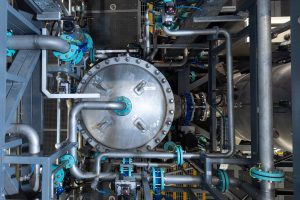Green initiative unveiled at Queen’s Medical Centre

The Queen’s Medical Centre (QMC) in Nottingham is currently undergoing an initiative to enhance energy efficiency and minimise its carbon footprint through a window replacement project.
Willmott Dixon has been enlisted by E.ON to execute this project, part of a 15-year program in collaboration with Nottingham University Hospitals (NUH) NHS Trust.
To date, over two miles of windows have been replaced with frames made from 80% recycled aluminium.
The original windows, in use since the hospital’s opening in 1977, are being replaced with double-glazed alternatives, which will improve air tightness, heat retention, and overall patient comfort.
Scheduled for completion in 2024, the project is expected to yield substantial benefits, including an estimated annual energy cost savings of £5m for the hospital.
Additionally, it will contribute to the hospital’s ambitious goal of reducing carbon emissions by 45% by the year 2030.
Nick Gibb, deputy managing director at Willmott Dixon, said: “Working alongside E.ON, this window refit initiative is part of a long-term proactive approach to tackle the climate crisis, something which hugely benefits NUH Trust in the form of cost savings and creating a better environment for patients and staff.
“A key part of this project was about ensuring QMC can care for its patients as normal, and we are proud to have been recognised as sustainability experts within the healthcare sector who can overcome the challenges posed by working in a live hospital environment. We are grateful to E.ON, NUH Trust and our delivery partners for their collaborative effort to achieve our shared goal of improving QMC’s offering for patients and staff while reducing the hospital’s impact on the planet.”
Anthony May, chief executive of Nottingham University Hospitals NHS Trust, said: “This partnership demonstrates our significant commitment to environmental sustainability and offers a creative solution to meeting our energy needs and tackling climate change, whilst at the same time improving patient and staff comfort by allowing us to better manage temperatures within our buildings.
“Innovative projects like these will play a hugely important role in helping us meet our ambitious goal of achieving a net zero carbon operation for heating and cooling system emissions by 2040.”









